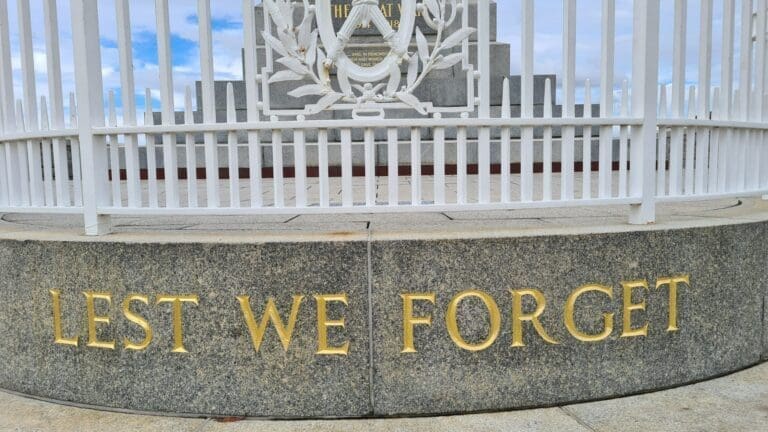Be Wise to Remember
Guest Contribution submitted by Debbie’s Dad
“Hear, O Israel! The Lord is our God, the Lord is one! “You shall love the Lord your God with all your heart and with all your soul and with all your might. “These words, which I am commanding you today, shall be on your heart. “You shall teach them diligently to your sons and shall talk of them when you sit in your house and when you walk by the way and when you lie down and when you rise up. “You shall bind them as a sign on your hand and they shall be as frontals on your forehead. “You shall write them on the doorposts of your house and on your gates.”
– Deuteronomy 6:4–9 (NASB95)
These important verses proclaimed to the Hebrew people by Moses summarize the objective and life mission of the people – to love their Lord their God, to obey His words, to teach them, and to keep them continually on their minds and in their hearts. The passage is referred to as the Shema (the first Hebrew word of verse 4 is שְׁמַ֖ע (Shema) – the Hebrew command to “hear”) and is the central passage even in Jewish liturgy today; it is recited in the morning and evening prayer service. The Shema is inscribed on small scrolls that are placed in a box called a mezuzah that is still fastened to the doorpost of many Jewish homes.
Remembering what God Said
Our study today first considers the emphasis in verses 8-9 that the Hebrews were to discuss them, carry them as a sign on their hand and forehead, and place them on the doorpost of their house. While the Jewish people have faithfully made small scrolls to carry out this directive in physical scrolls, the emphasis is on mechanisms of remembrance – remembering the Word of God throughout day-to-day life.
I have a good friend, Doug, who is a cognitive psychologist; he holds a Ph.D. in his field, and I learned a lot working with him on various projects. One thing that he taught me is the role of transactive memory in our lives. Transactive memory refers to the shared knowledge we have with other people and knowledge storage mechanisms that we interact with. We conduct transactions between our memory and many transactive objects – other people, a document we are working on in our computer memory, a notepad that we use to jot down ideas, a Bible we are reading, and so forth.
Moses instructed the people to record the commands of God – what God said – in transactive memory to help them remember! They were to discuss them in the way and record them on tiny notes that they would carry with them. But there is more than that single passage about transactive memory to remember God’s words:
- When the people crossed into the land of God’s promise, they were to write on a large stone the commands of God “very distinctly” (Deuteronomy 27:3, 8). This was a billboard of remembrance of what God said.
- Each future King, upon accession to the throne, was to write a personal hand-written copy of God’s commands written the book of Deuteronomy (Deuteronomy 17:18). By writing word-for-word what God said, the king would have caused his mind to pass over and learn God’s law and have his own reference handbook.
Hebrews 8 describes a new covenant and a future time when God will write his Word in the hearts of His people. The writer cites Jeremiah 31:33, which asserts, “But this is the covenant which I will make with the house of Israel after those days,” declares the Lord, “I will put My law within them, and on their heart I will write it; and I will be their God, and they shall be My people. Jeremiah 31:33 (NASB95)
Remembering what God Did
Next, we find we are also told in scripture to remember the things God has done for us in our life as we walk with Him. To the Hebrews, the entire Hebrew Bible was a record of God’s commands, His love, faithfulness, and mercy – and often, the human unfaithfulness of God’s people.
- Moses also instructed the people to remember how God led them: “You shall remember all the way which the LORD your God has led you in the wilderness these forty years, that He might humble you, testing you, to know what was in your heart, whether you would keep His commandments or not. Deuteronomy 8:2 (NASB95)
- Psalm 77:11–15 emphasizes remembering God’s work for Israel “I shall remember the deeds of the Lord; Surely I will remember Your wonders of old. I will meditate on all Your work. And muse on Your deeds. Your way, O God, is holy; What God is great like our God? You are the God who works wonders; You have made known Your strength among the peoples. You have by Your power redeemed Your people, The sons of Jacob and Joseph. Selah. “(NASB95)
- Psalm 105 recalls God’s majesty as well as his “deeds among the people”
They encourage us to stop and remember how God has worked in our life in the past and be grateful—perhaps writing it in transactive memory (our journal) to make sure we remember what our Heavenly Father has done for us individually.
May we also be wise to use our transactive memory–discussion with others in the way, God’s Word on our electronic devices and in book form, and our own personal journals. Let us be wise in remembering what God said and what He has done for us!
